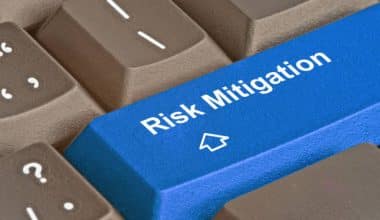Each project is unique and presents its own set of management difficulties. No matter what kind of project you are working on, there are undoubtedly strict deadlines and high expectations. In project management, everything is done through cooperation. Contrary to other areas, you cannot learn from failure. In other words, you must adhere completely to the rules if you must succeed. That’s where this guide on project management definition, skills, software, salary, and step components will be useful.
Let’s continue reading!!!
Project Management
The process of guiding a project from the outset through its lifecycle is referred to as project management. Finishing a project within the parameters of time, budget, and quality is the primary purpose of project management. Since they are not meant to last forever, projects have life cycles. Its life cycle begins when the project is started and ends when it is finished or terminated in some other way. Stakeholders make decisions about whether or not to finish the project or end it early and avoid losses at the conclusion of each phase.
Why is Project Management Important?
Only 58% of firms, according to a poll by the Project Management Institute (PMI), recognize the true value of project management and how it enables them to successfully address the problems they face. Hence, project management can benefit teams in the following ways in addition to increasing productivity, increasing project transparency, and giving them a clear direction:
- Effective communication
- Efficient handling of resources
- Increased customer satisfaction
- Greater adaptability and risk tolerance
- Increased team spirit
- A higher caliber of the product
- Retrospective learning
Project Management Salary
Project management professionals in the US earn a median salary of $94,500 in 2021, according to the US Bureau of Labor Statistics (BLS), with the bottom 10% making $49,750 and the highest 10% making $159,140. There are also some things that do affect a project management salary, which we will see shortly.
Factors That Affect the Project Management Salary
In this area, a number of variables eventually determine your salary payments in working under a project management department. Consider these elements of the pay equation if you want to maximize your compensation.
#1. Education
More education generally results in increased income, just like in many other fields. The average project manager has a bachelor’s degree (68%) and a master’s degree (14%). According to reports, incomes rise when the following degrees are earned.
- A four-year degree costs $102,588.
- $114,821 for a master’s degree.
- A doctorate degree costs $121,387
#2. Certification
A project management certification might help companies recognize your abilities and experience. This occasionally results in greater compensation. The median pay for individuals with a Project Management Professional (PMP) certification among US professionals surveyed by the Project Management Institute was $25,000 higher than that of those without.
#3. Years of Experience
In general, you may anticipate making more money with the more work experience you have. Fortunately, it doesn’t take long for experience to start paying off financially. “Project managers in the US can expect to make an average base pay of $74,011 with one to three years of experience, and $95,696 with ten to fourteen years of experience”, according to Glassdoor.
#4. Job Title
There are numerous positions in this profession. This is an additional way to consider average pay, even though your position may be related to your level of seniority and experience. These alternative job titles bring in the following median yearly salaries, according to the PMI Salary Survey:
- Expert in project management: $84,500
- Manager of programs: $127,100
- Manager of a portfolio: $140,000
- Project management director: $145,000.
#5. Location
Where you live can affect how much salary you make in many different areas, including project management. Project management positions typically pay the most annual salary in the Boston, New York City, and San Francisco Bay regions, according to data from the job posting website ZipRecruiter. The cost of living should also be taken into account while choosing a region. The places with the greatest pay often major cities tend to have higher costs of living.
#6. Company and Team Size
Your annual salary under a project management team may also be influenced by the size of the team you lead and the organization you work for. Generally speaking, the median yearly income for project managers increases with the size of the team.
Project Management Software
Further details about project management software are provided below along with suggestions on how to choose the best project management software for your team.
#1. GanttPro
One of the greatest project management software for beginners is GanttPro. This makes it a perfect choice for teams, particularly small teams, which lack a project management professional to oversee their initiatives.
#2. Zoho Projects
With a number of useful features at a reasonable price, Zoho Projects is a desirable solution for small and developing organizations. Its tiered pricing, with enticingly cheap rates, is also aimed at businesses on a budget and those with ambitious growth plans. It is simple to set up and use. This project management software has a wide range of setup choices and lets you keep track of your working hours. In Zoho Projects, you can create your own project templates.
#3. Celoxis
One of the top project management software for medium-sized and large businesses is Celoxis. This app offers a wealth of reports and other useful resources for decision-makers and business owners. For instance, Celoxis can be useful to forecast sales in addition to helping you work more productively by modifying project timelines. Celoxis has a quick setup time and is comparatively simple to operate. The inclusion of resource management, budgeting, and time-tracking capabilities will be welcomed by medium to large organizations.
#4. Teamwork
Teamwork is one of the top project management software available if your company manages projects for clients. It includes billing and invoicing, making it simple to keep track of the hours spent on a project and determine how much to charge. Teamwork was already a brilliantly developed project management platform before it began to concentrate on businesses that take on client work. To learn enough about Teamwork to utilize it in practice if you are new to project management, spend some time using it and viewing some of its great video courses.
#5. ProofHub
For teams that incorporate proofing phases into their process, ProofHub is a project management software. In other words, ProofHub provides features that other project management software do not assist you through those procedures if your team assesses or criticizes visual materials, whether ad campaigns or mobile app designs. It contains markup tools that you may use to annotate Documents and picture files while providing feedback or working with your team on them in other ways. ProofHub seeks to be straightforward without sacrificing essential capabilities. Also, it is reasonably priced for small teams. The fact that this tool is surprisingly simple to use makes it ideal for teams without a designated project manager.
Project Management Skills
You can take successful projects from conception to conclusion with the help of your project management skills. Project planning, risk assessment, opportunity analysis, budget creation, stakeholder communication, problem-solving, and other activities fall under this category. Of course, those who desire to begin or advance in their professions as project managers will find the abilities necessary to complete projects very valuable. This list of project management skills will provide you with a comprehensive overview of all the requirements for project leadership.
#1. Preparing and Projecting
It should go without saying that careful planning is necessary for effective project management. This can be difficult, especially given how frequently project managers must estimate deadlines and resource requirements.
#2. Risk Management
Risks exist in any project. Your deadline can be pushed back a few days if a resource isn’t available when you need it or if a client’s permission takes longer than expected to provide. Project managers must not just navigate hazards; they must also foresee them so they can do their utmost to completely prevent them.
#3. Budgeting
The fact is that if a project ends up costing far more than anticipated, it is difficult to call it a success. Project managers use their budgeting and financial management abilities to produce successful projects within the financial limits they are fit to work within.
#4. Monitoring and Following-up
The goal of project management is to complete a successful project, not just finish the job. If project managers don’t keep an eye on how the project is developing, that won’t happen. To make sure that projects are proceeding as planned and continuing to meet the larger company objectives, they must employ their abilities in performance tracking and monitoring.
#5. Meeting Facilitation
The usual project process involves numerous meetings, most of which are led by the project manager, including kickoff meetings, status reports, and retrospectives. Because of this, a project manager must possess strong meeting facilitation abilities, including setting an agenda, directing discussions, taking notes, and following up on action items.
#6. Reporting and Writing
Project managers write a surprising lot, from project planning to status updates. They must be adept at conveying textual information in a comprehensible, organized, and clear manner. They need to include reporting in the writing category. Project managers spend a lot of time assembling information about a project into a conclusion that all team members and stakeholders can readily analyze and comprehend, whether it’s a resource report or a progress report.
#7. Research
While there is some speculation involved in project management, it is usually educated conjecture. Project managers rely on historical information and data to support their estimations and hypotheses.
#8. Leadership
Project managers serve as both the project and frequently the team leaders. They are in charge of establishing the team’s vision and making sure everyone is committed and motivated to see the project through to completion.
#9. Communication
In any list of project management abilities, communication will undoubtedly be towards the top. Both verbal and written communication are included in this. Project managers must make sure that the team and stakeholders are aware of the project plan, timeframe, and budget as well as that they are kept up to date on the most recent developments.
#10. Collaboration
Usually, it takes a village to get a thing done. The project manager is in charge of organizing the team’s efforts, coordinating duties, and making sure that everyone gets along well.
#11. Time management
Any project manager will face multiple demands on their time, especially considering that they serve as the main point of contact for a wide range of teams and departments. They must have the capacity to manage their own time as well as the time and resources of all the project’s important stakeholders.
#12. Organization
Anybody’s mind would spin from deadlines, lack of resources, and task dependencies, yet a project manager sees it as a rewarding challenge. The greatest project managers can maintain track of all the moving parts and are incredibly organized.
#13. Problem-Solving
Despite how much you’d like to believe that everything will go according to plan, unforeseen problems will inevitably arise. Problems and unplanned hiccups cannot demotivate project managers. Instead, they must come up with ways to continue the project even when the best-laid ideas fail.
Project Management Step
According to a project management guide, it is better to start learning the fundamental phases of the project life cycle if you are placed in a position where you are expected to manage projects for your firm and are feeling overwhelmed. A project idea is transformed into a usable product through the combination of five distinct phases, including initiation, planning, execution, monitoring, and closing.
#1. Project Initiation
The first step in transforming an intangible idea into a worthwhile objective is the project commencement phase. You must create a business case and provide a broad definition of the project at this point. You must first ascertain the project’s need and establish a project charter in order to do that. The project charter is a crucial document that includes information on the project’s limitations, objectives, selection of the project manager, budget, anticipated timeline, etc. Although the project’s aim is clearly defined during this phase, a project charter does not include any of the technical details that are worked out during the planning phase.
#2. Project Planning
Complete diligence is required throughout the project planning stage, which establishes the project’s road map. The second stage of project management is anticipated to take close to half of the total project time unless you’re employing a contemporary project management approach like agile project management. Technical need identification, project schedule development, communication planning, and goal/deliverable setting are the main responsibilities in this phase.
Another crucial component of the project management planning step is a thorough project timeline that includes each deliverable. Project managers can create a project communication plan and a schedule of communication with the pertinent stakeholders using that timetable.
#3. Project Execution
The actual work is done by your team throughout the project execution phase. It is your responsibility as a project manager to create effective procedures and closely monitor the development of your team.
During this phase, the project manager also has the duty to continually uphold productive stakeholder collaboration. This makes sure that everyone is on the same page and that everything goes off without a hitch during the project. The top project collaboration solutions on the market can be of assistance to you. Not only will they simplify your life, but they’ll also boost team production and efficiency.
#4. Project Monitoring and Controlling
The third and fourth steps of the project management process are not always sequential. By running concurrently with project execution, the project monitoring and controlling phase make sure that goals and project deliverables are met. By developing Critical Success Factors (CSF) and Key Performance Indicators, you may ensure that no one deviates from the original plan as a project manager (KPI). The manager is also in charge of objectively tracking the effort and expense incurred throughout the process during the monitoring phase of project management. This tracking is crucial for current projects as well as ensuring that the project stays under budget.
#5. Project Completion
The project management process ends at this stage. The project’s conclusion after the last delivery is signaled by the project closure stage. External talent may occasionally be contracted out, particularly for the project. The project manager is also in charge of ending these contracts and completing the relevant paperwork.
After the project is finished, the majority of teams have a reflection meeting to discuss the project’s successes and problems. This is a practical way to guarantee ongoing development inside the business and boost team productivity in the long run.
Reviewing the entire project and writing a thorough report that covers every aspect is the last responsibility of this phase. The project managers of that company have access to all relevant data, which is kept in a safe location.
What Exactly Does Project Management Do?
The planning and coordination of a company’s resources to advance the completion of a certain work, event, or duty are known as project management.
What Is Project Management and Its Types?
A project’s preparation, start, execution, monitoring, and closure are all fundamental components of project management. Traditional, waterfall, agile, and lean project management strategies and techniques are only a few examples.
What Are the 4 Main Roles of a Project Manager?
Overseeing the creation of the necessary deliverables. planning and project management. utilizing any delegation and project assurance responsibilities while adhering to predetermined reporting structures. Project, stage, and exception plans should be created and maintained as needed.
Related Posts
- HOW TO GET INTO PROJECT MANAGEMENT: Definition, Guide, and Requirement
- PROJECT MANAGER QUALIFICATIONS: What You Should Know, Steps to Follow, and Salary
- Project Planning: A Guide To Project Planning Techniques
- TOP MANAGEMENT SKILLS With Examples
- RELATIONSHIP MARKETING: Definition and Implementation
- NPS QUESTION: Top 15+ Standard NPS Questions & How to Ask It
- CORE VALUES: Top 20+ Business & Personal Core Values
- BEST ASSETS TO BUY: Most Profitable Assets to Invest In 2023






